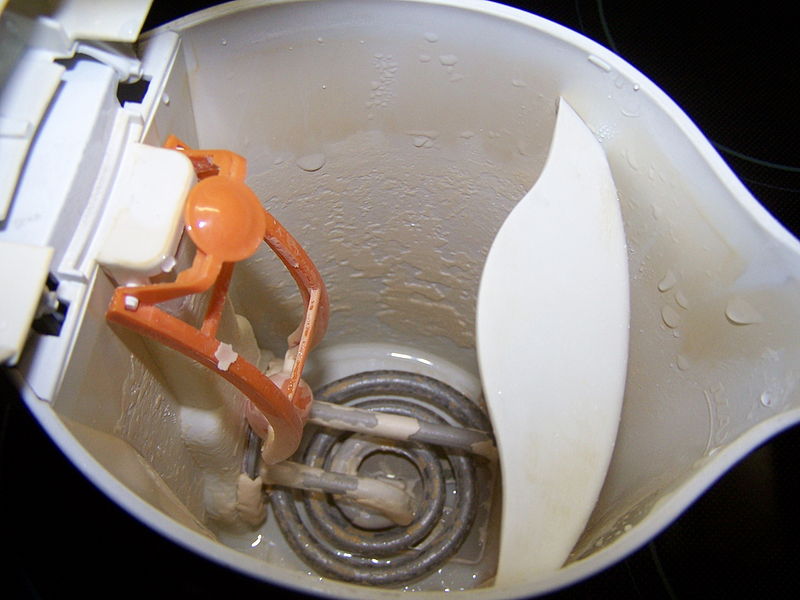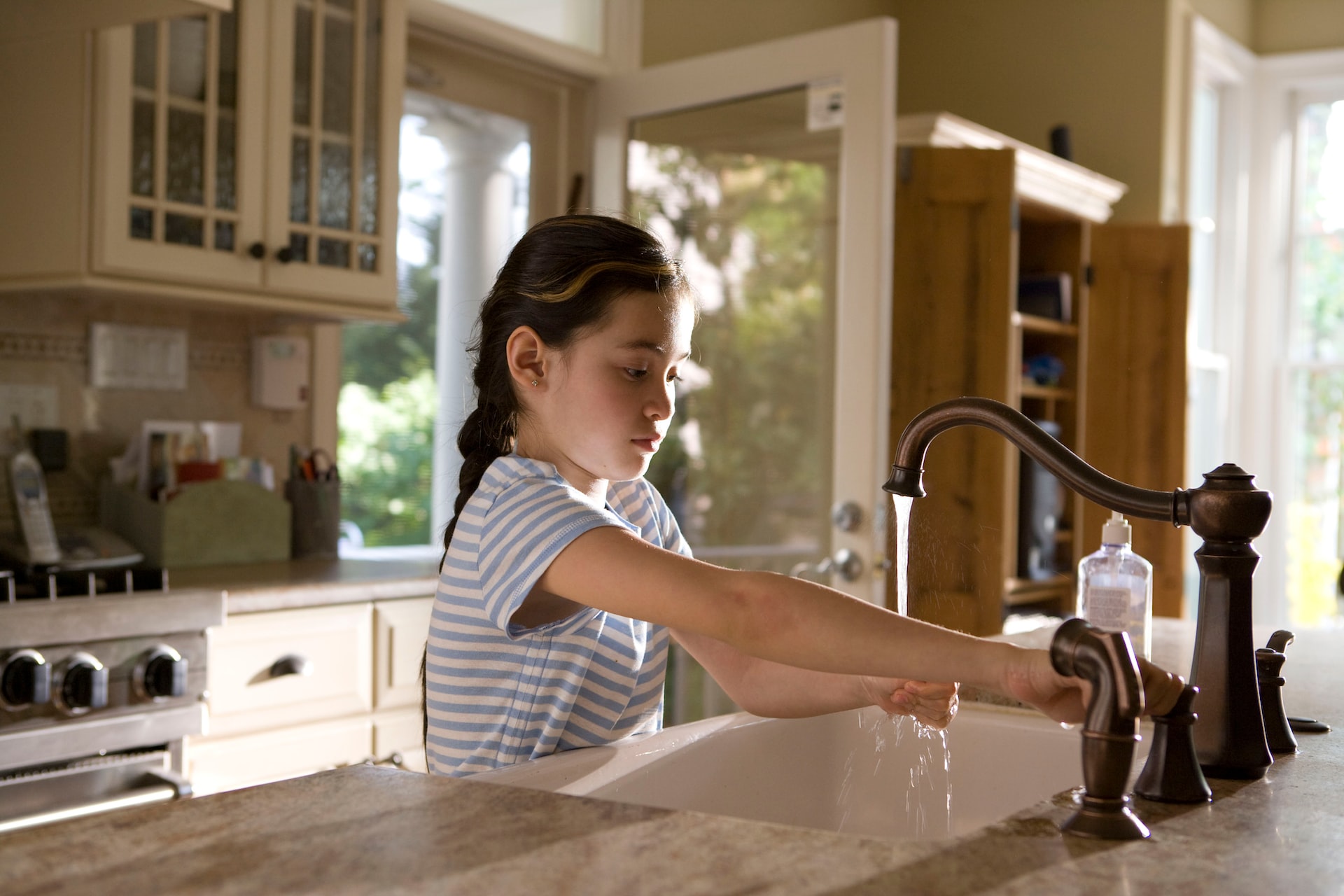It might not seem important, but knowing if your area has hard water or soft water can help make your day-to-day water use more efficient, as well as save you money on repairs and maintenance.
Luckily, there’s an easy way to check the hardness of the water in your area online. We’ve included a link below, as well as tips for how to handle hard water or soft water in your home.
.
What is water hardness?
‘Water hardness’ refers to the levels of dissolved minerals found in your tap water. Water with high levels of minerals like magnesium and calcium is called hard water. If there are low levels of these minerals, the water is soft.
Whether you have hard or soft water is determined by the bedrock in your area. Areas with chalk and limestone in the soil have hard water. As rainwater soaks through the soil, it collects minerals from these rocks before being collected in underground aquifers.
Do I have hard or soft water?
If you don’t know what rocks are in the soil around your home, don’t worry. Please Connect Me has created our very own Water Hardness Checker so you can find out if your local water is hard, medium, or soft!
Simply enter your postcode, and our checker will tell you your local water hardness, and what that means for your daily use of water.
Problems caused by hard water
Hard water has some benefits over softer water. The high calcium content helps keep bones and teeth strong, and some people prefer the taste. However, having harder water in your home can also cause issues.
One of the major problems caused by hard water is the buildup of limescale on your fixtures and appliances. Limescale refers to the mineral deposits left behind when hard water evaporates. It looks like a hard white or yellowish layer that builds up around your tap and shower heads, inside your kettle and anywhere else that regularly gets wet.
Limescale isn’t the only cause for concern when it comes to plumbing in a hard water area. High mineral concentration also contributes to corrosion and rust inside your pipes. Eventually, corroded pipes will need to be repaired or replaced to keep them watertight.

Hard water can lead to mineral deposits inside your kettle. Photo Credit: Wikimedia Commons
Hard water is also more difficult to make soap bubbles with. You may notice this when washing up or in the shower when soapy water forms a smooth lather rather than foam or bubbles. This means households with hard water tend to use more washing-up liquid, shampoo and shower gel to achieve the same results.
While some people enjoy the flavour of hard water, others may consider it musty, metallic or even eggy based on the dissolved minerals present. Of course, this goes both ways, with many considering soft water to have a flat, dull or stale flavour.
The high volume of dissolved particles in hard water can give water a cloudy appearance as well as leave streaks and deposits on windows and mirrors. These marks are caused by the same minerals as limescale deposits, left behind either by hard water rain or being washed in hard water.
While the WHO has stated there are no negative health effects associated with hard water, there is some evidence linking water hardness to problems with skin and hair. The link has been drawn between the difficulty lathering skin and hair care products in hard water and residue being left behind, irritating the skin and potentially damaging hair. It has also been suggested that hard water leaves mineral deposits in hair, just as it does to your drain and pipes. This evidence is far from conclusive, however, with some studies finding a weak or no connection between water hardness and hair loss or damage.
Solving hard water problems
There are a few things at home to reduce the impact of hard water, or even change how hard your water is. Most straightforward is to use a steel limescale collector in your kettle to stop the build-up. Regularly treating your taps and shower with specialist cleaning products also helps prevent the buildup and limescale.
If these measures aren’t enough, you can install either an electric descaler or a water softener. A descaler uses an electric signal to change the physical properties of the calcium in the water coming into your home, stopping it from forming limescale crystals and dissolving existing limescale.
An electric water softener draws your water through a mineral tank filled with resin beads and brine, replacing the calcium and magnesium with sodium and potassium through Ion exchange. These devices are very effective at softening water, but take care if you use one to soften your home drinking water as the added sodium in the water could be harmful, as well as giving the water a salty taste.
Read more about water in the UK:













